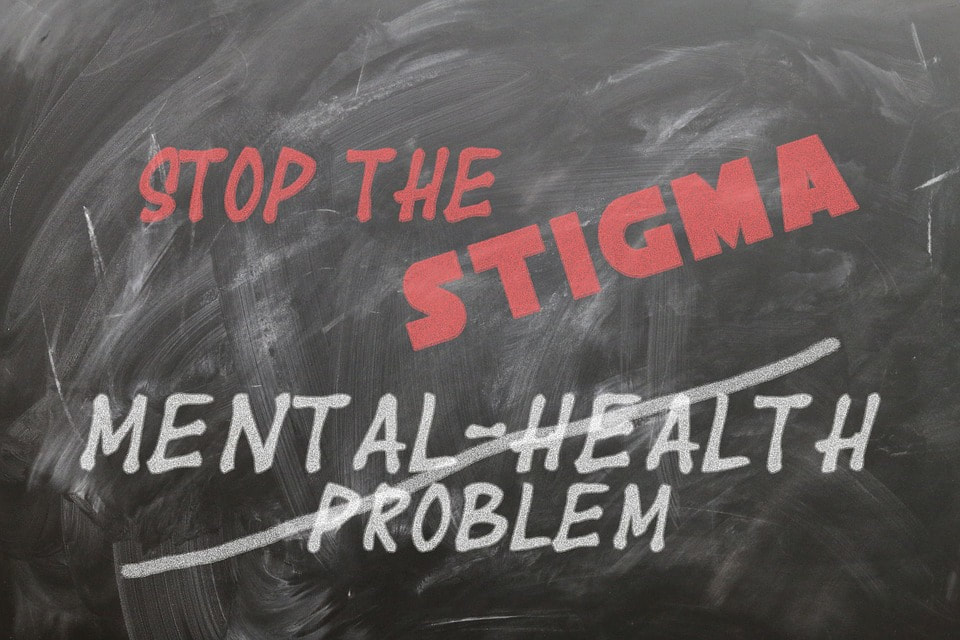|
The hashtag #CureStigma represents the new campaign by the National Alliance of Mental Health (NAMI), positioning mental illness stigma as a “social virus”, propagated through the internet and spread from person to person.
Mental illness stigma is essentially a metaphorical black mark that results in multi-level shame and discrimination against people that are already dealing with the challenges that come with managing and overcoming mental illness. In fact, most of the billions of people worldwide that are suffering from mental illness at this very moment will not receive any treatment, largely due to the attached stigma and shame preventing them from coming forward and seeking help. Although Generation Z and Millenials are showing signs of shifting perceptions, studies show that the majority of US and European citizens have stigmatizing attitudes about mental illness. Even health professionals (in all disciplines, from psychiatrists to primary physicians) are known to subscribe to misrepresentative mental illness stereotypes and discriminate against their patients. Counterintuitive to this, groundbreaking studies show that almost everyone (~80-90%) will have experienced a diagnosable mental illness by the time they have reached middle-age. It is actually more common than diabetes, heart disease, or any kind of cancer in known existence! Despite mental illness being the rule, not the exception, we are yet to shake the centuries-old discrimination of people dealing with mental illness. This also means that almost all of us, unless society changes soon, will get to experience mental illness stigma first hand at some point too. The Recipe for Mental Illness Stigma Stigma originates from multiple sources (self, home, society) working synergistically. It is brought about by a lack of knowledge and understanding (ignorance), with attitudes/beliefs based on negative stereotypes (prejudice), resulting in punitive actions and behaviors (discrimination): Common stigmatizing beliefs about people with mental illness that we know with scientific certainty is not the norm is that they are: dangerous, incompetent, always going to be mentally ill, and are personally responsible and to blame for their illness. Mental illness stigma and discrimination includes the following types, with both overlapping and uniquely damaging implications for the person being stigmatized:
Mental Health Monitoring to Accelerate the Cure Stigma Movement The #CureStigma campaign comes from the idea that stigma is 100% curable...and it undoubtedly is! At curestigma.org visitors can check if they are “infected” by stigmatizing beliefs or are #stigmafree by taking a short quiz, as well as receive information on how to “spread the cure” and a set of mobile Sentimojis™ designed to help #CureStigma. Quite frankly, it takes time and persistence to change societal attitudes towards a stigmatized group of individuals. Research is showing that multi-level action is integral to the #CureStigma mental health movement. In particular, mental health monitoring may be the among the most instrumental of tools that can rapidly destigmatize societal views and can help accelerate the necessary changes in all domains:
While mental health monitoring is able to foster equality between physical and mental Illness at the government/institutional level (structural stigma), it also holds the potential to essentially erase self and public stigma--its a broad-based fix of the stigma problem. With strategies that further accelerate the awareness and change already made by organizations like NAMI, there is the possibility we can largely #curestigma towards people with mental illness in our own lifetimes.
References
Angst, J., Paksarian, D., Cui, L., Merikangas, K., Hengartner, M., Ajdacic-Gross, V., & Rössler, W. (2015). The epidemiology of common mental disorders from age 20 to 50: results from the prospective Zurich cohort Study. Epidemiology And Psychiatric Sciences, 25(01), 24-32. doi: 10.1017/s204579601500027x Chandramouleeswaran, S., Rajaleelan, W., Edwin, N., & Koshy, I. (2017). Stigma and attitudes toward patients with psychiatric illness among postgraduate Indian physicians. Indian Journal Of Psychological Medicine, 39(6), 746. doi: 10.4103/ijpsym.ijpsym_84_17 Copeland, W., Shanahan, L., Costello, E., & Angold, A. (2011). Cumulative Prevalence of Psychiatric Disorders by Young Adulthood: A Prospective Cohort Analysis From the Great Smoky Mountains Study. Journal Of The American Academy Of Child & Adolescent Psychiatry, 50(3), 252-261. doi: 10.1016/j.jaac.2010.12.014 Corrigan, P., & Rao, D. (2012). On the Self-Stigma of Mental Illness: Stages, Disclosure, and Strategies for Change. The Canadian Journal Of Psychiatry, 57(8), 464-469. doi: 10.1177/070674371205700804 Henderson, C., & Gronholm, P. (2018). Mental Health Related Stigma as a ‘Wicked Problem’: The Need to Address Stigma and Consider the Consequences. International Journal Of Environmental Research And Public Health, 15(6), 1158. doi: 10.3390/ijerph15061158 Knaak, S., Mantler, E., & Szeto, A. (2017). Mental illness-related stigma in healthcare. Healthcare Management Forum, 30(2), 111-116. doi: 10.1177/0840470416679413 Stuart, H. (2016). Reducing the stigma of mental illness. Global Mental Health, 3. doi: 10.1017/gmh.2016.11 |
RECENT ARTICLES
The 5 Biggest Threats to Mental Health #CureStigma: Is That Even Possible? Using AI Chatbots for Mental Health Care — An Expert Opinion An Interview With Stop, Breathe & Think Zero Suicide? New Scientific Tools to Turn Fantasy into Reality Smart Mental Health Insurance—The Key to Insurtech Industry Dominations? Can New Mental Health Tech Enhance the Therapeutic Relationship? Data Privacy & Security in the Era of Augmented Mental Health The Death of Psychotherapy As We Know It Mental Health Insurance Crisis: Can mHealth Help? Plug the Employee Productivity Drain with Augmented Mental Health A Global Access Solution to the Trillion Dollar Mental Health Crisis |

 RSS Feed
RSS Feed